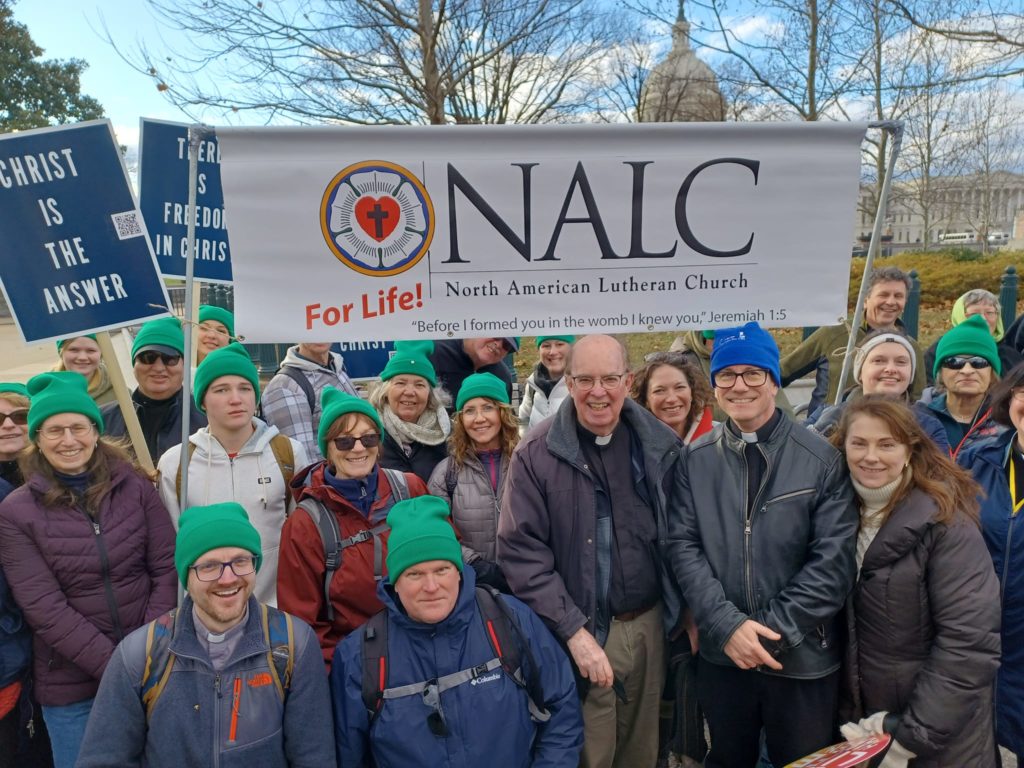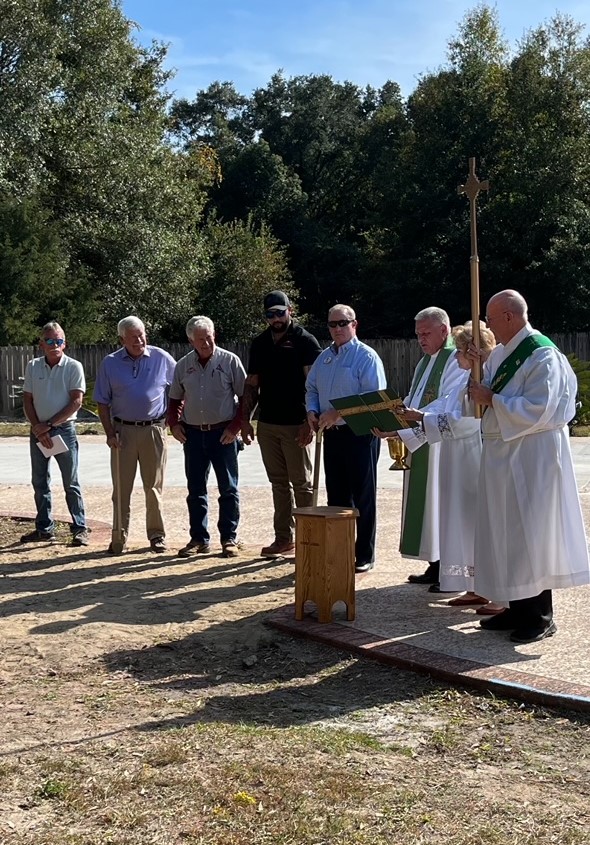Last month there was a discussion in the ELCA Clergy Facebook group where one person mentioned concerns that had been shared by a member of the congregation regarding last summer’s ELCA Youth Gathering in New Orleans. Specifically this member was disturbed over the promotion of LGBTQ ideology and the presence of drag queens. I responded by stating that a video had been shown at the gathering which argued on the basis of the creation account in Genesis for the possibility of more than two genders. I also reported that one of the summary videos for the event showed a group of young people with some drag queens.
Soon afterwards someone posted the question whether I am the Dennis Nelson who works with the NALC. I responded by saying that I am the Dennis Nelson who is the executive director of Lutheran CORE. That did it. Within a few minutes I found that I could no longer access the Facebook group. Several friends who are members of the group telephoned or sent me an email that confirmed that it had been reported by one of the administrators that – for the safety and well-being of the group – I had been removed. One of these informants sent me a screen shot of the announcement of my removal and the ensuing conversation. Some of it was quite nasty.
Here is the email that I then sent to the administrator who announced that I had been removed from the group.
* * * * * * *
Dear –
I was surprised to find out that I had been removed from the ELCA Clergy Facebook group when all I had done was to supply verifiable, publicly available information in response to a discussion regarding last summer’s ELCA youth gathering. I did not initiate the topic. Rather I merely contributed to the discussion by sharing that a video had been shown at the gathering which stated that the creation account in Genesis allows for the possibility of more than two genders and one of the recap videos showed some youth and drag queens.
I am a rostered ELCA pastor (retired) and am a member in good standing of an ELCA congregation where I do not cause disruption but instead contribute to the ministry. I serve as executive director of Lutheran CORE. Contrary to what was said in the conversation thread in the ELCA Clergy Facebook group, Lutheran CORE is not a ministry of the NALC. We are an independent, pan-Lutheran, reform and renewal movement. Our constituency comes from all three Lutheran church bodies – ELCA, LCMC, and NALC. Also contrary to what was said, Lutheran CORE is not the founder of the Lutheran Congregational Support Network. When we learned about that organization the board made it a priority to inform people of their work. We value what they are doing and the tone with which they are doing it.
You stated in the ELCA Clergy Facebook group that Lutheran CORE has “repeatedly demonstrated hostility and abusive behavior towards the ELCA and its clergy.” You said that I have “crossed boundaries targeting and undermining the very clergy this group exists to support.” You accused me of “targeted intolerance.” One member of the group said that it was important that I be identified by name “to prevent additional abusive (sic) from this individual.” Another member accused me of “tearing down ministries and churches.”
I would challenge you to identify any time when I have said anything hostile, abusive, targeting, undermining, intolerant, or tearing down in the ELCA Clergy Facebook group.
I would also challenge you to identify any time when I have been hostile, abusive, targeting, undermining, intolerant, or tearing down in any of my writings for Lutheran CORE. All of my writings are publicly available on Lutheran CORE’s website. Everything I report can be verified through the links I provide to ELCA primary sources. I feel that not I, but the discussion about me in the ELCA Clergy Facebook group has been hostile, abusive, and targeting. The only way that I can interpret the words that were said about me and the action that was taken against me is that you people are so skittish and easily threatened by opinions and information that do not fit with your preferred narrative.
We of Lutheran CORE feel that an important part of our work is alerting pastors, lay leaders, and congregations to what is happening in the ELCA as well as evaluating the significance of those dynamics. Since Lutheran CORE seems to be the only organization that is doing that, we feel that ours is a very valuable ministry. We are very concerned that people know about the possible changes that may be coming because of the work of the Commission for a Renewed Lutheran Church, the DEIA audit which the ELCA had done of its governing documents, and the work of the task force that is reconsidering the human sexuality social statement. What motivates us is love for Jesus, the Gospel, and people, and concern for the ministry of the Church. We are not driven by anger, hatred, and a desire to undermine ELCA clergy and tear down ELCA ministries and churches.
Lutheran CORE’s website shows that we are not a hate group that cares nothing about ministry. Our goal is not to disrupt congregations. Rather we provide many valuable resources for pastors, lay leaders, and congregations, including worship aides, daily devotionals, and weekly lectionary-based Bible studies and children’s messages. We have a support group for seminarians and are one of the sponsors of a program that challenges high schoolers to consider God’s call on their lives. We offer webinars on various topics related to church leadership and provide guidance for congregations in the call process as well as for congregations that are coming to the realization that very likely there will not be an ordained pastor available for them to call. We support cross-country mission trips to help people who have suffered a disaster, as well as local mission trips in the Baltimore area. We have held annual Encuentro events in the Chicago area for congregations that are already involved in as well as congregations considering becoming involved in Spanish language and/or bilingual ministry. The majority of those attending as well as presenting at those events are ELCA. All of the above show that Lutheran CORE provides valuable resources to pastors, lay leaders, and congregations.
I believe that as the administrators and members of the ELCA Clergy Facebook group you need to ask yourselves why you are so threatened by opinions and verifiable, factual information that does not fit with your preferred narrative. Through the things that you have said about me you have shown that you are the ones whose words are hostile and abusive.
In Christ,
Dennis D. Nelson
Retired ELCA Pastor
Executive Director of Lutheran CORE
* * * * * *
Later that day I received a reply from the pastor/administrator. There are several things I would say about his response. I did not reply to him because I did not see the purpose or point of continuing the conversation. But I did want to let you know how he responded and I wanted to show you how fragile, inconsistent, hypocritical, and intolerant they are.
First, he said, “Your work with Lutheran CORE has long been a source of division and pain within the ELCA.”
It is not Lutheran CORE that has caused division and pain within the ELCA. Instead it is the LGBTQIA+ agenda. The election of the ELCA’s first gay bishop in the synod in which I was rostered before I retired caused total conflict and turmoil within the congregation where I had served as pastor for thirty-nine years, and that conflict continued throughout and beyond my final year there. The LGBTQIA+ agenda has caused pain in my life in a way in which I never have caused pain in their lives. Also, before the ELCA changed its policies in 2009 regarding the blessing of same sex relations and the ordination of persons in same sex relations, people who wanted those policies to change disrupted a Churchwide Assembly, defied ELCA standards, and were very blatant and brazen about doing so.
Second, he said, “The organization’s efforts, both direct and indirect, to encourage congregations to leave the ELCA, often under the guise of reform, have left deep wounds.”
Reform is not a “guise” that we hide behind. Instead it is central to our work. Our purpose and mission is not to get congregations to leave the ELCA. Rather it includes alerting persons and congregations that are still in the ELCA to what is happening in and to changes that could be soon coming to the ELCA. We fully realize that for many congregations, leaving the ELCA would not be possible and/or would not be the right or best decision.
Third, he said, “The shaming and mischaracterization of LGBTQIA+ individuals, who are beloved children of God, are especially harmful and stand in opposition to the inclusive love of Christ.”
We do not engage in shaming or mischaracterizing LGBTQIA+ individuals. We agree that they are beloved children of God. We love them and are concerned for them because we believe that they are living a life that is not pleasing to God. We are also deeply concerned as we see that it is only non-binary and LGBTQIA+ ideology that is being promoted at the ELCA youth gatherings. The young people there never hear anything that supports and encourages a traditional view of human sexuality, even though the ELCA still says – in its 2009 human sexuality social statement – that traditional views still have a place of dignity and respect within the ELCA.
Fourth, he said, “When individuals or organizations repeatedly engage in actions that cause division, foster animosity, or promote intolerance – especially towards marginalized communities – it becomes clear that their participation is not aligned with the group’s purpose.”
During the years leading up to the 2009 decisions, during the time when traditional views still prevailed – though always by an ever-decreasing percentage amount – those with traditional views always bent over backwards to make sure that all views – including revisionist views – were treated respectfully and were heard. After revisionist views prevailed in 2009, those with traditional views were not afforded the same kind of courtesy that they had extended for years. It felt like we were being pushed over the cliff. It is not the LGBTQIA+ community that is marginalized. Instead they are a preferred and empowered community. It is those with traditional views that are marginalized. Evidence for this is in the fact that ReconcilingWorks has a voice but no vote position on the ELCA Church Council while the same courtesy is not extended to any group with traditional views.
Fifth, he said, “This decision is not about being ‘threatened’ by different opinions, as you suggest. It is about setting boundaries that foster a supportive, respectful environment for ELCA clergy. Intentionally divisive contributions, no matter how they are framed, detract from that goal.”
Nothing that we say or do is ever “intentionally divisive.” Rather it is motivated by the deepest of love for and commitment to Christ, people, and the mission of the church. For these people any dissent from the “preferred view” is considered disloyal, divisive, and disruptive.
And then he concluded by saying that he has “a deep pastoral responsibility to protect this group as a safe space for clergy who seek encouragement and support rather than conflict.”
In my contribution to the most recent discussion which got me kicked out of the group – as well as in all my other contributions in this Facebook group – I have never said or done anything disruptive, divisive, or conflict producing. Rather I merely pointed out information that would be available to anyone who went to the primary sources.












